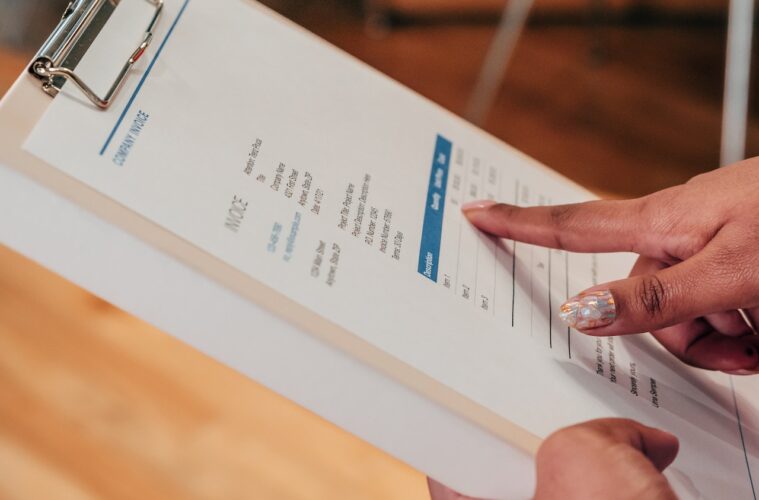Every month, your business receives a bill with specific charges that you have to pay. These charges indicate the amount of a certain utility service that your business used during that specific period. Your bill also gives information to help you understand the difference between monthly charges.
The bill shows what utility you used and when, and the charge that you have to pay. Understanding the charges on your monthly bill will help you make sure that your business is paying the right amount for services rendered. By understanding these charges, you can save your business money.
You receive a bill for every utility that your business uses, also called business utilities. There are likely several types of business utilities that you are charged for. When you understand what utilities are and the definition of utility bills, you will most likely find ways to cut down on the charges displayed on these bills.
What are utilities and utility bills?
Utilities are the basic services that a business cannot go without, such as gas, electricity, and water. Naturally, your business has to pay for these services. The amount that your business has to pay utility suppliers is given in a utility bill. A utility bill is in the form of a detailed invoice sent to your business by your utility provider.
The bill states the amount of the utility used over a given time, the amount you have to pay for it, and how this information differs from previous bills. Utility bills also indicate the cost per unit and a standing charge of a utility. The utility supplier’s preferred method of payment is given as well. Utility bills are delivered in physical form, printed on paper, or by email.
Utility bills include the name of the account holder (which is the business name), the full address of the business, and the relevant dates. Utility bills can be used as proof of residence when you are opening a bank account for your business, as well as when your business is applying for credit or benefits.
Understanding utility bills
It is important to note that not all bills are utility bills, especially when it comes to business utilities. There are multiple types of utility bills, but the three main types are gas, electricity, and water. Each of these types of bills has different types of charges and information.
Electricity Bills and Gas Bills
An energy bill includes electricity and gas charges. These bills are received every three, six, or twelve months, and they indicate the amount of electricity and gas used by your business. This bill includes the following information:
- Your account number. This is a code used by your electricity and gas suppliers to identify your business.
- Bill date. The bill was generated on this date.
- Bill date period. This is the time period covered by the bill.
- Your meter point reference number (MPRN). This is a unique ten-digit number assigned to your electricity connection and meter.
- Meter point administration number (MPAN). A 21-digit number used to identify your property.
- Your meter serial number. A combination of letters and numbers used to identify your meter.
- Estimated readings. If you haven’t given meter readings to your supplier, they will estimate your gas usage.
- Meter readings. If you give meter readings to your supplier, it will be shown on your bill as ‘actual’ or ‘customer’ supplied.
- The price charged per unit of electricity of gas.
- Standing charge. A fixed daily levy charged by your energy provider for maintaining your gas supply. This isn’t affected by how much electricity or gas you use.
- Payment date. The date when the payment is due.
- Taxes are either 20% or 5%, depending on your type of business and sustainability initiatives you are involved in.
- CCL (Climate Change Levy). Green initiative tax reduction program.
Water Bills
Your business will receive a water bill usually every six months. These bills cover the amount of clean water that enters and leaves your business property, as well as the treatment of wastewater. Depending on if your business water is metered or unmetered, the charges will vary. If your water and sewerage suppliers are not the same, you will receive separate bills. Water bills include the following information:
- Your business information. The name and address of your business.
- Customer reference or invoice number. The number you should reference when making a payment.
- Supply point ID and waste supply point ID. This is a unique number that indicates your water access point’s location.
- Account summary. This is a summary of charges, adjustments made to your bills, as well as any outstanding debts.
- Charge summary. Charges for a particular billing period. This includes service charges and VAT.
- Charge breakdown. This is a fixed charge covering service maintenance. If your business has a water meter, you will be charged a volumetric charge; otherwise, you will be charged a rateable value.
Conclusion
Understanding the different types of utility bills and how their charges affect the expenses of your business is important. If you do not know what a charge on your utility bill means, how will you know if you are being overcharged? Understanding the charges on your utility bills will have a big influence on your budget choices. With the issue of money sorted out, your business will be able to focus on productivity instead.





